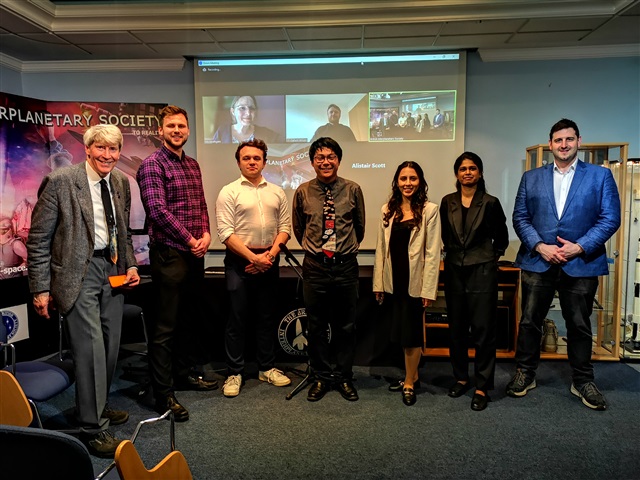The International Astronautical Congress (IAC), is one of the world’s largest space conferences taking place each year. For 2023, the IAC is taking place in Baku, Azerbaijan.
Each year, there is a student paper competition with an undergraduate student and a postgraduate student selected to represent the UK. This selection is carried out jointly by the British Interplanetary Society and the IET’s Satellite Network.
For this year, Yun-Hang Cho from the IET Satellite Network helped to judge the UK selection process. 11 undergraduate abstracts and 5 postgraduate abstracts were reviewed based on their relevance to important space issues, technical quality, and clarity of writing. From these, 3 undergraduate and 2 postgraduate entries were selected to give a 10-15minute presentation.
The topics of the entries ranged from space debris to developing environmentally sustainable spacecraft and AI-based entry, descent, and landing systems.
The presentations were very interesting and different in terms of technical detail and presentation flair. The Q&A gave all participants, expert judges, and audience members a chance to explore their work in deeper detail and discover new lines of thought. By doing so, the break times served as a wonderful opportunity for learning about each other, discussions on their work and proposing new potential collaborations.
The Undergraduate Winner was Thomas Hale with a paper on 'An Attitude-Independent Parachute for Deorbiting Inoperative Satellites'.
The Postgraduate Winner was Shabadini Sampath with a paper on 'Intelligent and Robust Control of Space Manipulator for Active Removal of Space Debris'

L-R (in-person) Alistair Scott (Judge), John Mackintosh (Finalist), Thomas Hale (Winner), Yun-Hang Cho (Judge), Rocio Vallera Falla (Finalist), Shabadini Sampath (Winner), Simon Feast (Judge).
L-R (on screen) Vix Southgate (IAC2023 lead), Callum Wilson (Finalist).
“Yun was a really valuable judge on the day and gave the students some excellent feedback, I think they will all benefit from your words of wisdom!”
Vix Southgate, British Interplanetary Society
For all readers who may be doing technical presentations, I want to share several pieces of advice:
1) Use the ABCD introduction to capture the audience’s attention, state the personal benefit of listen, highlight your credentials to build trust, and give direction to set expectations for the forthcoming presentation.
2) If complex equations or diagrams must be used, then hide the parts which are not being discussed and only reveal them when you reach that part. This directs the audience’s focus on the relevant area whilst you guide them.
3) Lastly, when including citations on slides, either add the full reference as an immediate footnote or make sure to finish your presentation on the references list so that viewers have chance to read them. After Q&A, have a final slide with your contact details and the title of the presentation so people can take a picture and contact you afterwards.
Many thanks to the British Interplanetary Society for organising the event and giving everyone such a fantastic experience. Congratulations to all the participants, best of luck to the UK representatives and I hope to meet everyone again in the future.
Yun-Hang Cho
Volunteer on behalf of the IET Satellite Technical Network